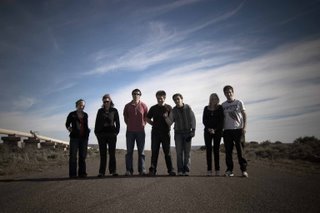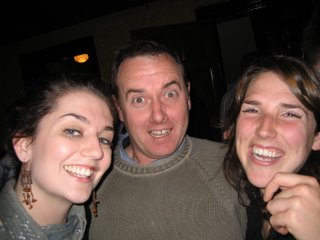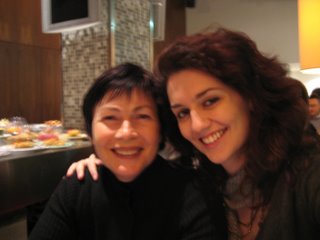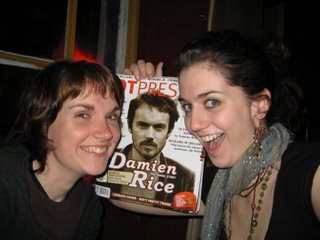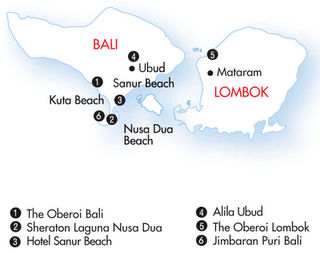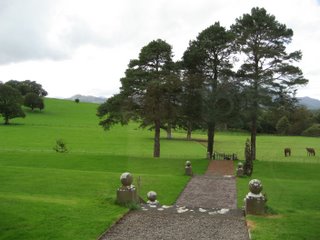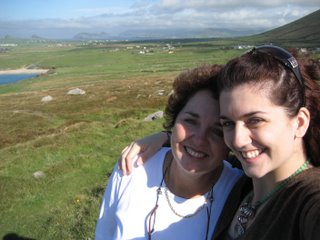'Will This Man Lose the Will to Live?'
THE AGE - Opinion
By Michael Gordon
October 11, 2006

The funeral service for Olympian Peter Norman on Monday raised an intriguing question. Why is it that stories about some people capture the public imagination while others that may be just as compelling do not?
John Carlos, one of the black runners who shared the dais with Norman at the 1968 Mexico Olympics, observed that the sprinter should be as well known in Australia as Steve Irwin. Such, said Carlos, was the power of his role in their famous stand on human rights.
Yet while the image of the barefoot Tommie Smith and Carlos giving that black power salute is considered one of the most influential of the 20th century, the story of Norman's role in the protest is unknown to a great many Australians.
"You guys have lost of great soldier," remarked Carlos. "Go and tell your kids the story of Peter Norman."
A similar point can be made about Mohammed Sagar, an Iraqi refugee who has been detained offshore since he was rescued five years ago yesterday in the "children overboard" episode, and David Hicks.
While Hicks' detention without trial on Guantanamo Bay has, quite rightly, prompted expressions of outrage from a cross-section of Australians, from church leaders to former prime ministers, Sagar's situation has gone largely unremarked.
Of course, Sagar has not endured anything like the conditions that have been inflicted upon Hicks for 41/2 years and he is not an Australian. But his situation should alarm Australians who believe in notions of natural justice, the rule of law, compassion and a fair go.
After suffering physically and mentally under Saddam Hussein's rule and being found by Australian officials to have a genuine fear of persecution if he returned to Iraq, he has been held against his will on the tiny, near-bankrupt island of Nauru.
When I visited him on the island late last month, he told me how he wanted to have his life back, whether it be happy or sad. "I want to be alive, that's all, because now I'm feeling like a dead living thing."
Fran Kelly on the ABC's Radio National pursued the story for three days last week, culminating with an interview with Foreign Minister Alexander Downer about the $100,000-a-month visa fee Nauru has set for Sagar, to encourage Australia to find a solution for him.
When Kelly pressed Downer on Nauru's concern for Sagar and another Iraqi who had been held there, he displayed a singular indifference to their plight, observing that "one of them, I think, has been dealt with".
This was a euphemism for the decision several weeks ago to evacuate the second Iraqi, Mohammad Faisal, to a Brisbane hospital after his despair led him to become suicidal. He is said to be recovering well and may soon be released into a form of community-based care.
There are at least two explanations for the lack of pressure on the Howard Government to address the situation of Sagar on Nauru.
The first is that Nauru is a very long way away and communications are patchy at best. Sagar is out of sight and out of mind.
The second is that he, along with Faisal, received a negative security assessment from ASIO that meant Australia no longer had any obligation to offer him protection under the United Nations refugee convention.
While a lack of sympathy for a person considered a security threat by ASIO is understandable, neither man has ever been told what he is alleged to have done to warrant the assessment, so neither has had the opportunity to defend himself.
Neither Sagar nor Faisal had the benefit of any representation when they were interviewed on Nauru.
Both complain that an interviewing officer was very aggressive during the interview. Both are adamant they represent no threat to anyone.
And there is a bigger problem. There is no capacity for some outside authority, for instance a retired judge, to establish that ASIO's decision was soundly based.
Moreover, in their time on Nauru, neither man has caused any problems. On the contrary, both are highly regarded. Faisal was virtually adopted by a Nauruan family while Sagar has earned high praise for his voluntary work at the Nauru campus of the University of the South Pacific.
Indeed, while I was on Nauru he seemed to be regarded as a kind of voluntary help desk for the Nauruan Government and Australian officials working to tackle that country's considerable problems.
If there was a case to answer for some past deed or connection - and both men say there is not - their exemplary behaviour on Nauru surely should count for something.
Both men do have supporters in Australia who have been working hard on their behalf. Lawyer Julian Burnside, who characterises the treatment of both as "calculated cruelty", has launched a legal challenge to the ASIO assessments. But this is likely to be a very long process.
Susan Metcalfe, a researcher who has visited Nauru several times, has written letters to ministers pleading for some resolution and been a constant source of comfort. So have many others.
But time is running out. Recently, Sagar quit his part-time job at the university and withdrew from his studies. He likened himself to a dish that had been cooked and, instead of being removed from the stove, had been subject to even greater heat. "I'm done," he said.
It is time for some hard questions to be asked of those who have for too long considered the ASIO assessments a reason to do nothing.
The bottom line is whether the intention is to wait until Sagar, like Faisal, loses his will to live before someone decides he should be "dealt with".




























